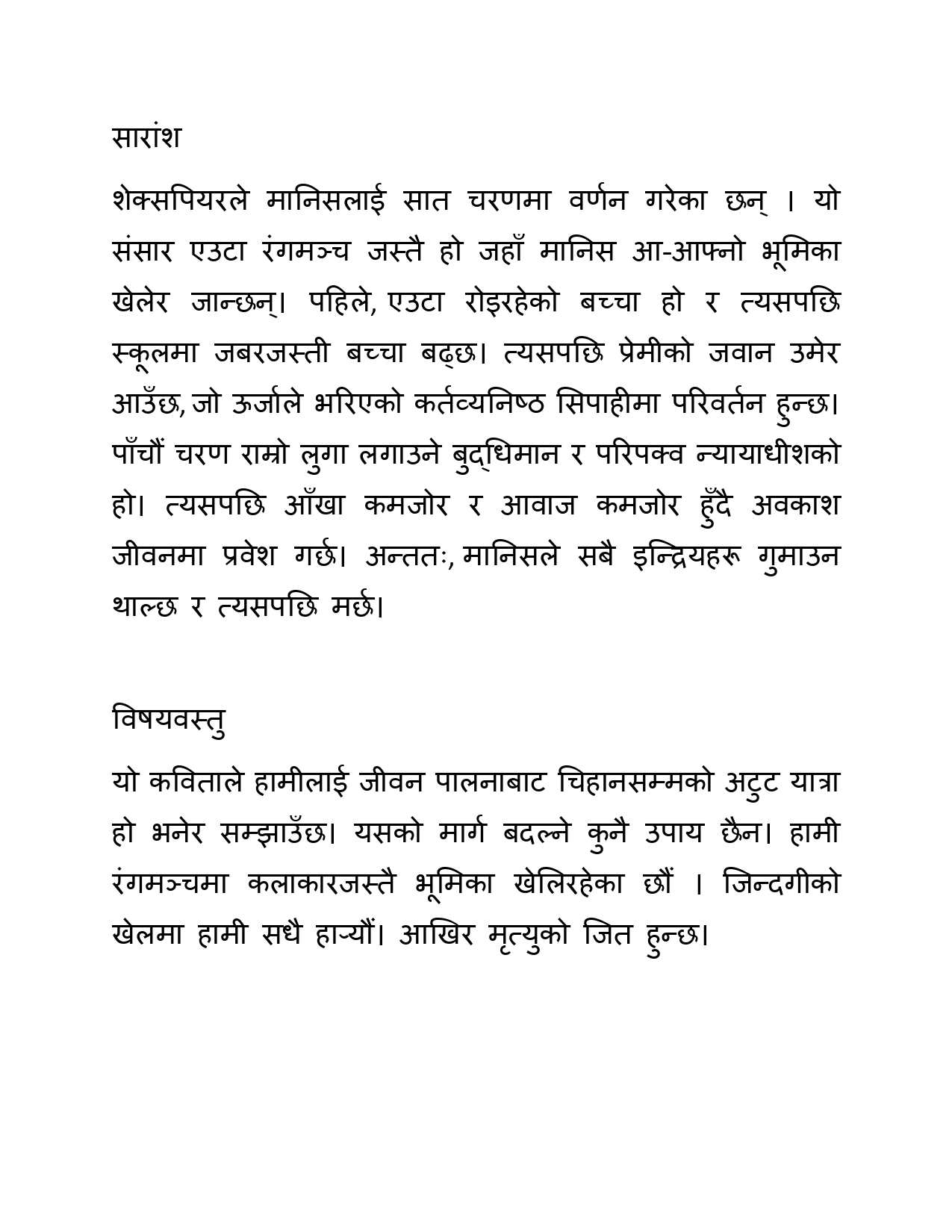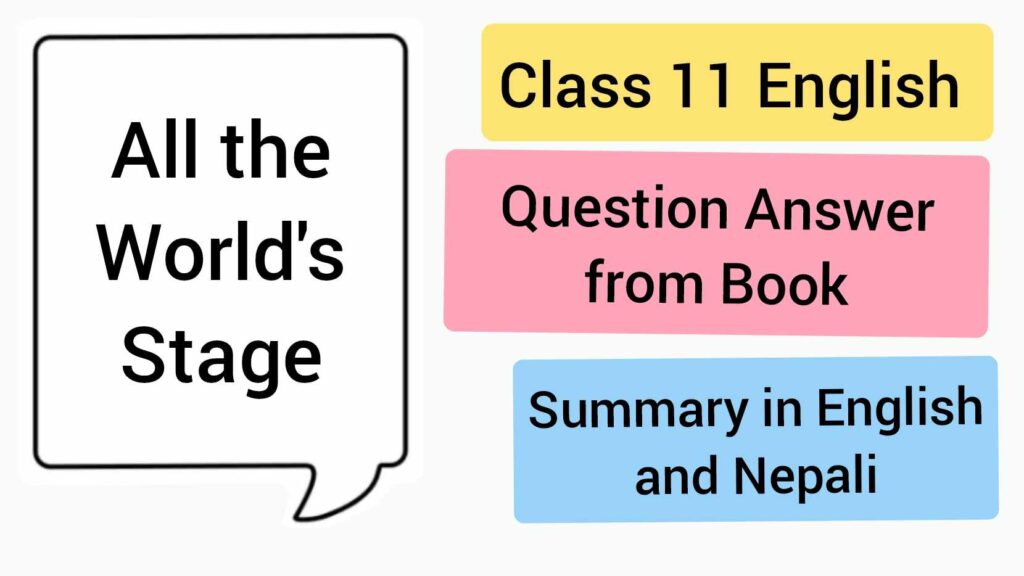All the World’s a Stage: Class 11 English Unit-13 Exercise Solution
Unit-13 All the World’s a Stage
by William Shakespeare
Summary
Shakespeare describes human in seven stages. This world is like a stage where human beings come and go playing their different roles. First, one is a crying baby and then grows into a child forced to school. Then comes the young age of the lover, who changes into a dutiful soldier full of energy. The fifth stage is of a wise and mature judge wearing fine clothes. Then one enters retired life with eyes becoming weak and voice becoming low. At last, one begins to lose all senses and then dies.

Theme
The poem reminds us that life is an unstoppable journey from cradle to grave. There is no way to change its course. We are just playing our roles like actors on stage. We are always losers in the game of life. Death wins in the end.
Understanding the text
Answer the following questions.
a. Why does the poet compare the world with a stage?
Ans: The poet compares the world with a drama stage. Here men and women become the players. We enter and then exit as our roles end. Everyone plays different roles. The poet describes these roles as the seven stages of life.
b. What is the first stage in a human’s life? In what sense can it be a troubling stage?
Ans: The newborn baby is the first stage of life. This is a troubling age because the baby cries all the time. It also passes vomit, urine and stool many times. These things cause difficulty for the caregiver or parents.
c. Describe the second stage of life based on the poem.
Ans: The second stage of life based on the poem is the schoolboy.
d. Why is the last stage called second childhood?
Ans: In the last stage of life, old people become like child again, so it is called second childhood. They need as much care as a child. They become stubborn like a child and cause difficulty for those who look after them.
e. In what sense are we the players in the world stage?
Ans: The poet compares the world with a drama stage. Here men and women become the players. We enter and then exit as our roles end. Everyone plays different roles. The poet describes these roles as the seven stages of life.
d. Simile and metaphor are the two major poetic devices used in this poem. Explain
Ans: Yes, simile and metaphor are the two major poetic devices used in this poem. Shakespeare has used several literary devices in this poem.‘Creeping like a snail” and “soldier… bearded like the pard”etc. are the examples of simile in this poem. Human beings are presented as players. Human life is metaphorically compared with the seven stages. In the same way, the stage is compared with human life’s stage.
Simile uses like or as to compare things. Metaphor is direct comparison without using like or as.
e. Which style does the poet use to express his emotions about how he thinks that the world is a stage and all the people living in it are mere players?
Ans: The poet has used a narrative style to present his innermost emotions and feelings about the reality of our life. He thinks that the world is a stage and people living in it are players playing different roles according to our context. Characters go through seven different stages in their lives. Shakespeare has used several literary devices in this poem like simile, metaphor, anaphora, repetition,etc to express his ideas.
f. What is the theme of this poem?
Ans: The poem reminds us that life is an unstoppable journey from cradle to grave. There is no way to change its course. We are just playing our roles like actors on stage. We are always losers in the game of life. Death wins in the end.
Reference beyond the text
a. Describe the various stages of a human’s life picturised in the poem “All the World’s a Stage.”
Ans: Shakespeare describes human in seven stages. This world is like a stage where human beings come and go playing their different roles. First, one is a crying baby and then grows into a child forced to school. Then comes the young age of the lover, who changes into a dutiful soldier full of energy. The fifth stage is of a wise and mature judge wearing fine clothes. Then one enters retired life with eyes becoming weak and voice becoming low. At last, one begins to lose all senses and then dies.
b. Is Shakespeare’s comparison of human’s life with a drama stage apt? How?
Ans: Shakespeare’s comparison of human life to the dramatic theatre is truly relevant and has become a recurring theme in his works. He often describes life as a performance, with individuals playing different roles and going through various actions and scenes. One of the most famous references to this comparison is in his play “As You Like It,” in which the character Jacques gives a monologue known as the “Everybody’s Like” speech. is the stage”. In this speech, Jacques describes the different stages of human life, comparing them to the different roles played by actors on stage.

